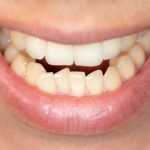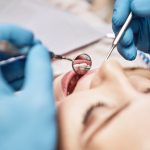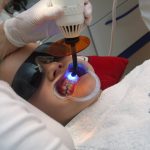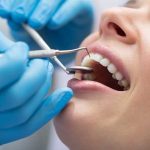Preventing Dental Displacement: Effective Tips on How to Stop Teeth from Shifting
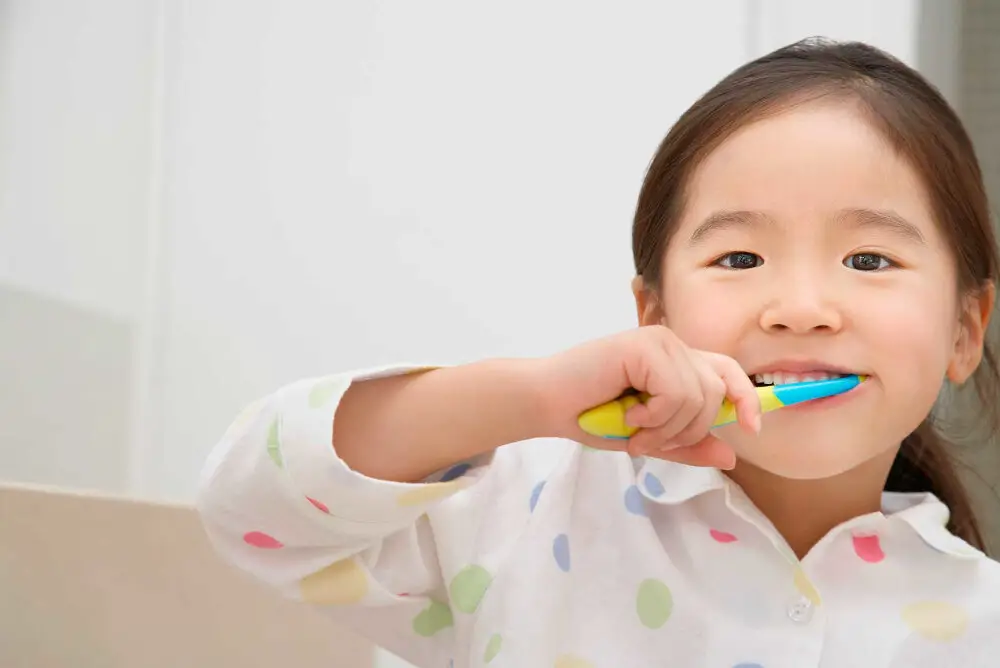
Dental displacement can be a frustrating and painful experience. It occurs when teeth shift from their original position, leading to bite problems, crooked teeth, and even tooth loss. Dental displacement can be caused by a variety of factors, including genetics, age, dental trauma, and poor oral health. However, there are effective tips and techniques that can help prevent dental displacement and keep your teeth healthy and in place. Prevention is always better than cure, and this rings true when it comes to dental displacement. If left untreated, it can lead to more severe dental problems that may require costly treatments. Fortunately, there are several preventive measures that you can take to avoid dental displacement. With proper oral hygiene, regular dental check-ups, and lifestyle changes, you can maintain healthy teeth and prevent displacement. In this article, we will discuss effective tips on how to stop teeth from shifting and maintain a healthy smile.
Dental displacement is the movement of teeth from their original position. This can happen due to various reasons such as age, genetics, injury or trauma, and habits like teeth grinding or nail-biting. When a tooth is displaced, it may cause discomfort, pain, and affect the overall appearance of your smile. Moreover, it can lead to misalignment of teeth, bite problems and other dental issues. Preventing dental displacement requires proper oral hygiene, regular dental checkups, and avoiding habits that can damage your teeth. By following effective tips, such as wearing a mouthguard for sports and avoiding hard or chewy foods, you can stop teeth from shifting and maintain a healthy, beautiful smile.
Preventing dental displacement is crucial for maintaining oral health and a beautiful smile. When teeth shift out of their proper position, it can cause discomfort, difficulty in chewing, speech problems, and even lead to gum disease or tooth decay. Additionally, misaligned teeth can impact an individual’s appearance, affecting their self-esteem and confidence. It is therefore essential to take proactive measures to stop teeth from shifting, such as wearing a retainer, practicing good oral hygiene, avoiding bad habits like nail-biting or teeth grinding, and seeking orthodontic treatment if necessary. By prioritizing the prevention of dental displacement, individuals can ensure their teeth remain healthy, functional, and aesthetically pleasing.
Preventing dental displacement is an important aspect of maintaining good oral health. It is crucial to ensure that the teeth remain in their proper position to avoid discomfort, pain, and even jaw problems. In this article, we will discuss various effective tips on how to stop teeth from shifting. The tips include wearing retainers, maintaining proper oral hygiene, avoiding habits that cause dental displacement such as nail-biting, and visiting the dentist regularly. We will also touch on the importance of wearing a mouthguard during physical activities and the role of braces in preventing dental displacement. By following these tips, individuals can prevent the shifting of their teeth, keep their bite aligned and maintain optimal oral health.
Subheading 1 Maintain Good Oral Hygiene
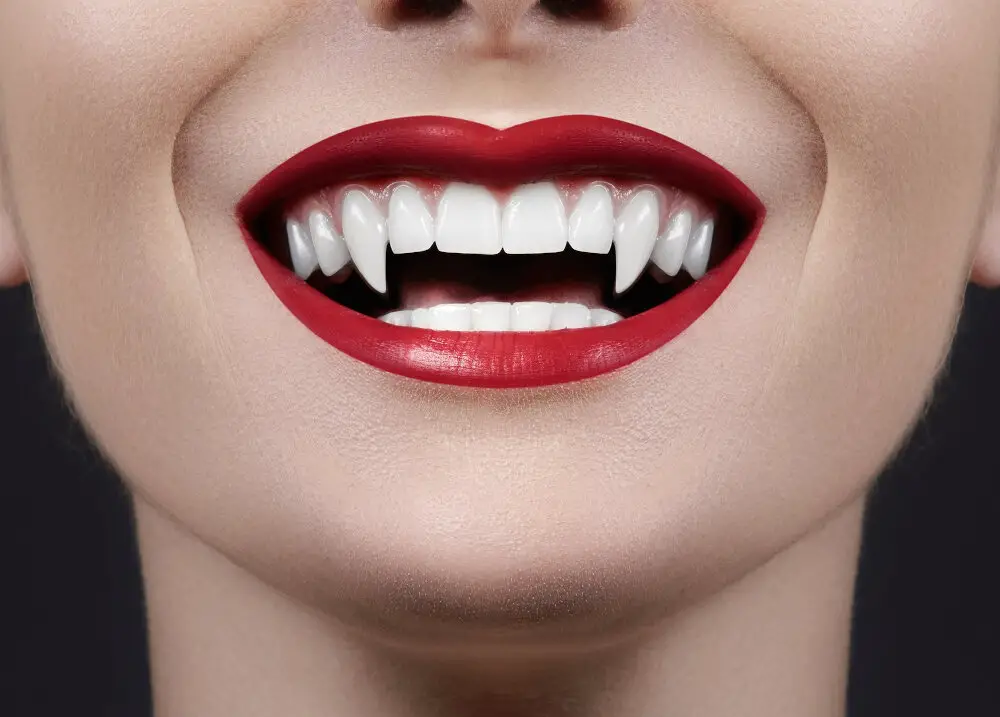
Maintaining good oral hygiene is essential to prevent dental displacement and keep your teeth healthy and strong. Brushing your teeth twice a day with fluoride toothpaste and flossing daily can remove plaque and food particles that can cause tooth decay and gum disease. It is also recommended to rinse your mouth with an antibacterial mouthwash to kill bacteria and freshen your breath. Regular dental check-ups and cleanings are also important to detect early signs of dental displacement and prevent more serious dental problems. In addition to brushing and flossing, there are other ways to maintain good oral hygiene and prevent dental displacement. Avoid sugary and acidic foods and drinks that can erode tooth enamel and cause cavities. Drink plenty of water to keep your mouth hydrated and wash away bacteria and food particles. Chew sugar-free gum to increase saliva production, which can neutralize acids in your mouth and prevent tooth decay. By following these simple tips, you can maintain good oral hygiene and keep your teeth healthy and strong, preventing dental displacement and other dental problems.
Poor oral hygiene can lead to dental displacement because it can cause gum disease, which can weaken the supporting structures of the teeth. When the gums and bone that hold the teeth in place are compromised, the teeth can shift or become loose. In addition, plaque and tartar buildup can also contribute to dental displacement by pushing the teeth out of alignment. Neglecting proper oral hygiene habits, such as brushing and flossing regularly, can ultimately lead to dental displacement and other serious dental problems. Therefore, it is important to maintain good oral hygiene and visit the dentist regularly to prevent dental displacement and ensure optimal dental health.
Maintaining good oral hygiene is essential to prevent dental displacement, which can lead to various oral health problems. Brushing your teeth twice a day, flossing daily, and using mouthwash can help remove plaque and bacteria from your teeth and gums. Avoiding sugary and acidic foods and drinks, and drinking plenty of water can also contribute to oral health. Regular dental check-ups and cleanings are also crucial as they can detect any potential dental issues early on and prevent them from worsening. Additionally, wearing a mouthguard when playing sports or grinding teeth at night can help protect teeth from trauma and prevent displacement. By following these tips, you can maintain good oral hygiene and prevent dental displacement, ensuring long-term oral health.
Regular dental checkups and cleanings are vital in maintaining good oral health and preventing dental displacement. During checkups, your dentist can identify any early signs of tooth shifting and take corrective measures before the problem worsens. In addition, professional cleanings remove plaque and tartar buildup which can contribute to tooth displacement. Neglecting regular dental visits can result in serious dental problems, such as gum disease, tooth decay, and tooth loss. By attending regular checkups and cleanings, you can prevent these issues and keep your smile healthy and beautiful.
Subheading 2 Wear a Mouthguard
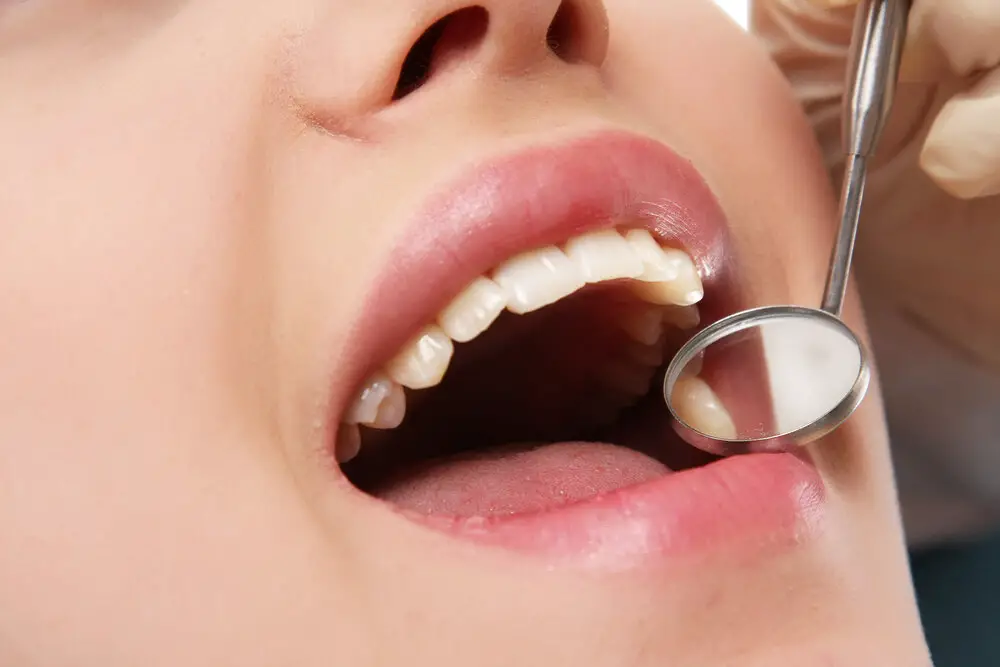
Wearing a mouthguard is an effective way to prevent dental displacement. Whether you’re an athlete or a nighttime teeth grinder, a mouthguard can protect your teeth from the forces that can cause them to shift. Mouthguards are made from durable materials that absorb and distribute the impact of blows or grinding forces, reducing the risk of dental displacement. Mouthguards can be custom-fitted by a dentist, or you can purchase a boil-and-bite mouthguard that molds to your teeth for a comfortable fit. It’s important to wear a mouthguard during sports or physical activities that pose a risk of dental injury, such as football, basketball, or hockey. In addition to protecting your teeth from direct impact, a mouthguard can also reduce the risk of jaw fractures and concussion. For night-time teeth grinding, a mouthguard can help prevent the excessive forces that can cause dental displacement over time. If you’re unsure about which type of mouthguard is right for you, consult with your dentist for personalized recommendations.
Mouthguards are an effective tool in preventing dental displacement caused by trauma or sports injuries. By cushioning the teeth and jaws, mouthguards absorb the impact of a blow to the mouth, reducing the risk of teeth being knocked out of position. Mouthguards can also help prevent displacement caused by grinding or clenching teeth, a common habit that can lead to shifting and misalignment over time. Properly fitting mouthguards are essential for maximum protection, and custom-made options are available from dental professionals for the best fit and comfort. Incorporating mouthguards into a regular dental care routine can help maintain dental alignment and prevent displacement due to injury or habits.
Mouthguards are essential devices that help protect your teeth from damage during sports or other activities that may cause dental displacement. There are three types of mouthguards available, including stock, boil and bite, and custom-made mouthguards. Stock mouthguards are pre-formed and ready to wear, but they may not fit properly and may require constant adjustment. Boil and bite mouthguards are made of thermoplastic material that softens when boiled, allowing you to customize the fit by biting down on it. Custom-made mouthguards are the most comfortable and provide the best protection as they are made from a mold of your teeth. They are more expensive but are worth the investment if you are serious about preventing dental displacement.
A mouthguard is a protective device that is used to cover the teeth and gums to prevent any damage or injury during physical activities. It is essential to wear a mouthguard during high-impact sports such as football, hockey, basketball, and boxing to prevent dental displacement or tooth loss. It is also recommended to wear a mouthguard if you grind your teeth at night or suffer from sleep apnea. Mouthguards are available in different types, including custom-fitted, boil-and-bite, and stock mouthguards. Investing in a high-quality mouthguard can help prevent dental displacement and protect your teeth and gums.
Subheading 3 Address Teeth Grinding and Clenching
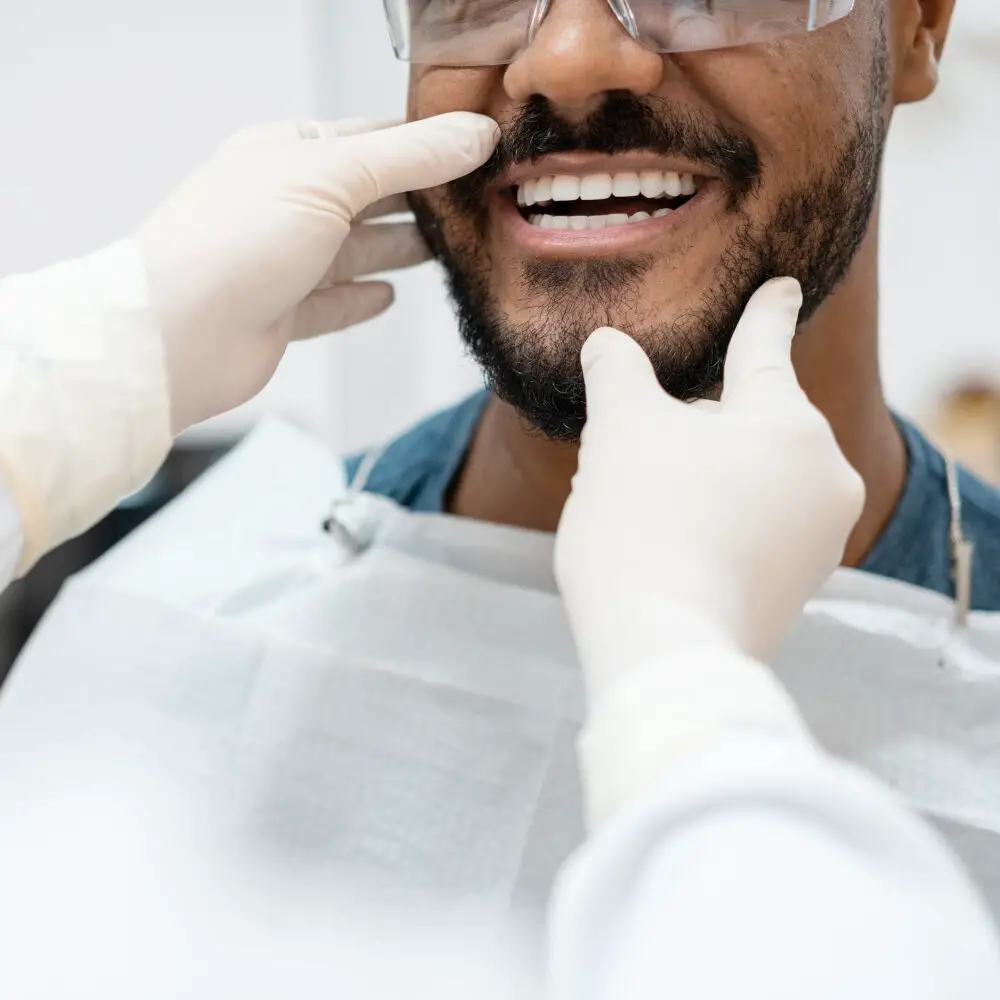
Teeth grinding and clenching, also known as bruxism, can be detrimental to your dental health and cause unwanted displacement of your teeth. This condition is often caused by stress and anxiety, and can lead to tooth wear, jaw pain, headaches, and even tooth fractures. To address teeth grinding and clenching, it is recommended to wear a night guard while sleeping. A night guard is a custom-fitted appliance that is worn over your teeth to protect them from the harmful effects of grinding and clenching. It can also help alleviate jaw pain caused by bruxism. If you believe you are suffering from bruxism, it is important to see a dentist who can properly diagnose and treat the condition. In addition to wearing a night guard, there are other methods to help address teeth grinding and clenching. One effective technique is to reduce stress and anxiety through exercise, meditation, or counseling. It is also important to avoid consuming substances that can exacerbate bruxism, such as caffeine and alcohol. If you have a habit of clenching your teeth during the day, try to become more aware of this habit and train yourself to relax your jaw muscles. With proper treatment and lifestyle changes, it is possible to prevent dental displacement caused by teeth grinding and clenching and maintain a healthy smile.
Teeth grinding and clenching, also known as bruxism, can cause dental displacement due to the excessive force and pressure exerted on the teeth and jaw. The constant grinding and clenching can wear down the enamel, which is the protective layer of the teeth, making them more vulnerable to damage and movement. Moreover, bruxism can lead to the misalignment of the teeth and jaw, causing them to shift and move out of their original position. This displacement can result in various dental problems, such as bite issues, uneven wear and tear, and even tooth loss. Therefore, it is essential to address bruxism and seek treatment to prevent dental displacement and maintain a healthy smile.
Teeth grinding and clenching, also known as bruxism, can lead to dental displacement over time if left untreated. To address this issue, there are several tips to consider. Firstly, relaxation techniques such as yoga or meditation can help reduce stress and tension in the jaw muscles. Additionally, avoiding stimulating substances such as caffeine and alcohol before bed can reduce the likelihood of grinding at night. Wearing a mouthguard at night can also help protect the teeth from damage caused by grinding. Finally, speaking with a dentist or healthcare professional can provide additional guidance and support in addressing this issue and preventing dental displacement. By taking proactive measures to address bruxism, individuals can protect their teeth and maintain optimal oral health.
Night guards are an effective treatment to prevent dental displacement caused by bruxism or teeth grinding. The custom-made dental appliance is worn over the teeth during sleep and prevents the upper and lower teeth from rubbing against each other. This helps to reduce the pressure and friction on teeth, gums, and jaw muscles, which can cause teeth to shift or become loose over time. In addition to night guards, other treatments such as orthodontic appliances, dental implants, or crowns and bridges may be recommended depending on the severity of dental displacement. It is important to consult with a dental professional to determine the best treatment plan for your individual needs and prevent further damage to your teeth and overall oral health.
Subheading 4 Address Misaligned Teeth
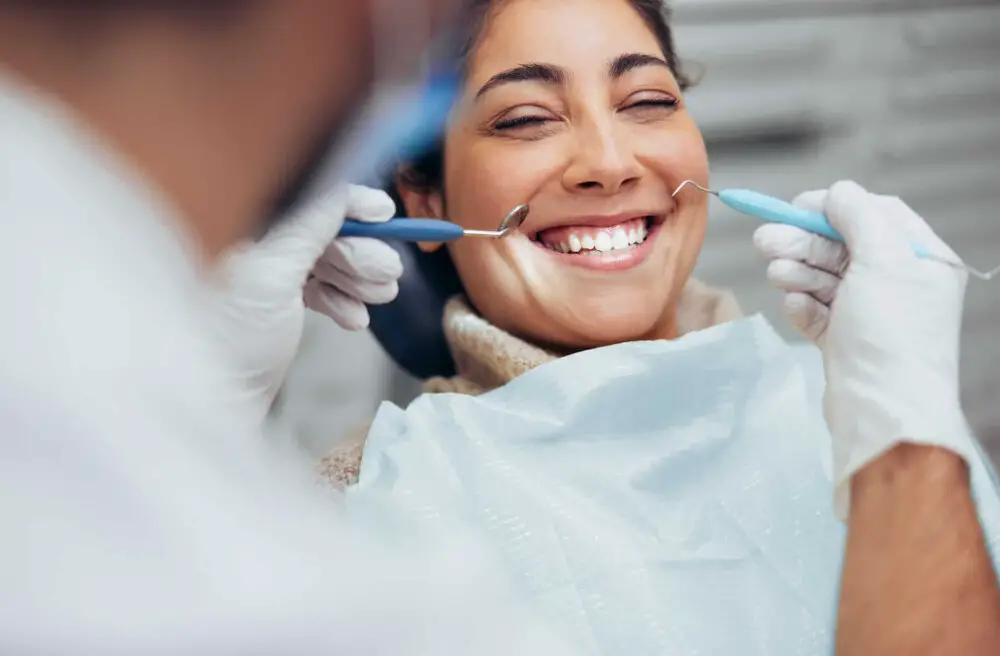
Misaligned teeth can cause a host of problems, from difficulty chewing and speaking to self-consciousness about your smile. Fortunately, there are several ways to address this issue. One option is orthodontic treatment, which can involve traditional braces or clear aligners. Braces use brackets and wires to gradually move teeth into the correct position, while clear aligners use a series of custom-made trays to achieve the same result. Both methods can be effective, but the best choice for you will depend on your specific needs and preferences. Another option for addressing misaligned teeth is dental veneers. Veneers are thin shells made of porcelain or composite resin that are placed over the front surface of teeth to improve their appearance. In addition to correcting alignment issues, veneers can also be used to whiten teeth, fill in gaps, and improve the shape of teeth. While veneers are not a traditional orthodontic treatment, they can be a good option for patients who want to improve their smile quickly and without the need for braces or aligners. Overall, if you’re concerned about misaligned teeth, it’s important to talk to your dentist or orthodontist to determine the best course of action for your specific needs.
Misaligned teeth occur when teeth are not properly aligned, causing them to be crooked, crowded, or protruding. Misaligned teeth can lead to dental displacement because they create uneven pressure on teeth, causing them to shift and move out of place over time. This can result in gaps between teeth, overlapping teeth, and other alignment issues. Additionally, misaligned teeth can make it difficult to properly clean teeth and gums, which can lead to gum disease, decay, and other oral health issues. To prevent dental displacement, it is important to seek treatment for misaligned teeth, such as braces, clear aligners, or other orthodontic options, as early as possible.
Orthodontic treatment is of utmost importance in maintaining a healthy and attractive smile. Misaligned teeth not only affect the appearance of a person’s smile but also lead to various dental problems such as gum disease, tooth decay, and difficulty in speaking and chewing. Orthodontic treatment helps to correct the alignment of teeth and jaws, which improves the overall oral health and function. It can also prevent dental displacement caused by habits such as thumb sucking or tongue thrusting. Early intervention with orthodontic treatment can prevent more severe dental problems from developing, making it a crucial aspect of dental care. By seeking orthodontic treatment, patients can achieve a beautiful smile and a healthy mouth, which ultimately leads to improved confidence and quality of life.
Orthodontic treatment refers to the correction of dental irregularities, including teeth misalignment and improper bite. There are various types of orthodontic treatments available to prevent dental displacement. The traditional braces are made of metal brackets and wires, which are attached to the teeth and adjusted over time to apply pressure to move the teeth. For those who prefer a less noticeable option, clear aligners, such as Invisalign, can be used. These aligners are customized to fit your teeth and are virtually invisible. Lingual braces are another option, which are placed on the back of the teeth, making them completely hidden from view. Additionally, orthodontic treatments can be used to correct jaw misalignment and teeth grinding or clenching. Overall, orthodontic treatment options are diverse and can be tailored to fit each patient’s unique needs.
Preventing dental displacement is critical to maintaining a healthy and attractive smile. Teeth can shift out of position for various reasons, including aging, genetic factors, and poor oral hygiene. When teeth move, it can cause a range of problems, such as uneven bite, jaw pain, and difficulty chewing. Furthermore, misaligned teeth can negatively affect one’s self-esteem and confidence. Therefore, it is essential to take preventive measures to prevent dental displacement, including regular dental checkups, proper oral hygiene, wearing a mouthguard to protect teeth during sports, and avoiding habits that can damage teeth and gums. By taking these steps, individuals can ensure their teeth remain in their proper position, leading to better dental health and overall well-being.
Preventing dental displacement is a crucial aspect of oral health, and there are several effective tips on how to stop teeth from shifting. Firstly, wearing a retainer is one of the most popular ways to keep teeth in place following orthodontic treatment. Secondly, maintaining good oral hygiene habits, such as brushing and flossing regularly, can prevent gum disease and tooth loss. Additionally, avoiding bad habits, such as chewing on hard objects or grinding teeth, can also prevent dental displacement. Finally, seeking regular dental check-ups can help detect any issues early on and prevent further dental displacement. Overall, by following these simple yet effective tips, individuals can maintain a healthy and beautiful smile.
It’s imperative to seek professional dental advice and treatment if you notice any shifting in your teeth. While some minor shifting may be normal, significant movement can indicate underlying issues that require immediate attention. Neglecting dental problems can lead to severe consequences, such as tooth decay, gum disease, and even tooth loss. Seeking professional help can prevent these issues from worsening and ensure that your teeth remain healthy and stable. Don’t hesitate to consult a dentist if you notice any changes in your bite or alignment, as early intervention can save you time, money, and discomfort in the long run. Remember, prevention is always better than cure, so prioritize your dental health and seek professional advice as soon as possible.
Conclusion
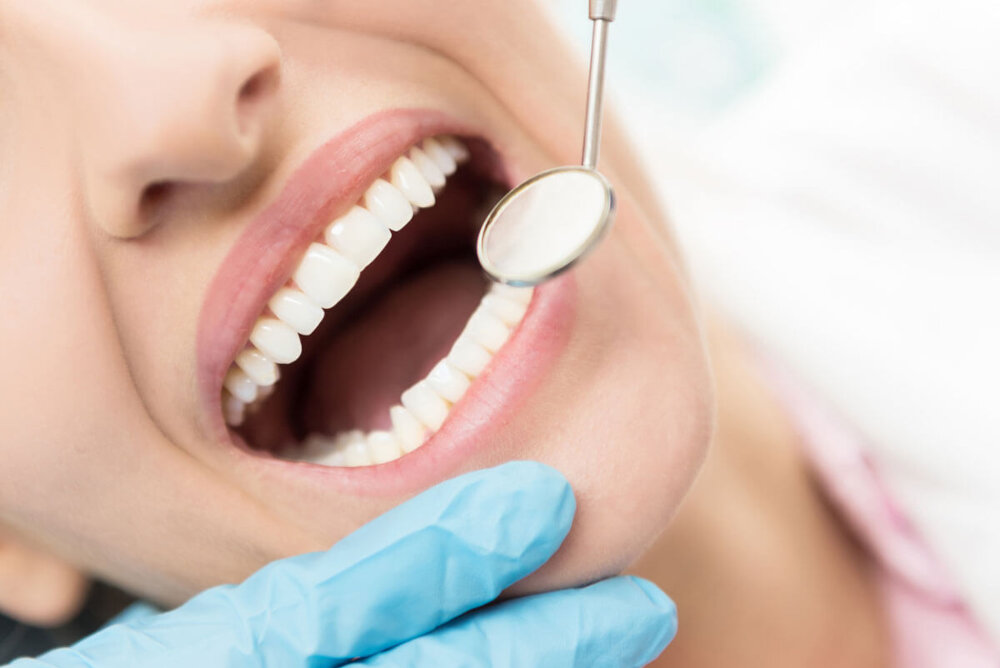
In conclusion, preventing dental displacement is essential for maintaining good oral health and preventing further dental problems in the future. By adopting the effective tips on how to stop teeth from shifting, such as wearing retainers, practicing good oral hygiene, and avoiding bad habits such as grinding and clenching, individuals can ensure that their teeth remain in their proper position. It is important to remember that prevention is always better than cure, and taking the necessary steps to prevent dental displacement can save one from costly and painful dental procedures down the line. So, make sure to prioritize your dental health and take the necessary precautions to keep your teeth in their proper position.

